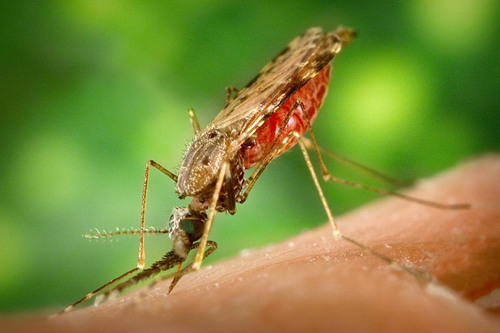A GROWING number of Scots are returning from abroad with malaria, it has been revealed.
Figures show an increase of 28% in the number of Scots diagnosed with the deadly disease in the last year alone.
Those going abroad for business or visiting friends or families in high-risk areas accounted for more than half of the cases, according to new analysis.
Now experts are calling for travellers to take greater care when preparing for holidays in malaria zones – urging them to take anti-malaria drugs for the the full course, including doses after they return home.
The figures revealed the number of people diagnosed with malaria in Scotland rose more in Scotland than in the UK as a whole.
In 2014, 76 cases were recorded in Scotland – a 28% increase on the previous year and the highest number in five years.

Dr Evonne Curran, a nurse consultant in infection control for Health Protection Scotland (HPS), said: “People may come home and think, I’m fine, I’m back. But taking the medication as prescribed is absolutely critical.”
She went on to explain that the purposes of surveillance for the disease was to identify: “Where is the message not getting through?”
Analysis from HPS shows that three quarters of those diagnosed with malaria in Scotland in the last year were male, with four under the age of 16.
The majority of those with the disease had been to Africa, with three people dying from the disease in the UK in 2014.
Dr Curran suggested that the rising popularity of unusual holiday destinations – including African safaris – could be to blame for the rising figures.
She added: “Hopefully as more data comes in they will be able to understand who is most at risk, but we do know that going to an endemic area and not taking the tablets are key.
“We have got a way not to get malaria. Take advice before you go on a trip”.
Malaria is a mosquito-borne infectious disease which caused an estimated 584,000 deaths in 2014.
The largest proportion of deaths from the disease occur in Africa, with 90% of total deaths occurring in the region.
Symptoms include a severe fever, headaches and vomiting, and patients are urged to seek medical attention as soon as possible as it can quickly become fatal.

